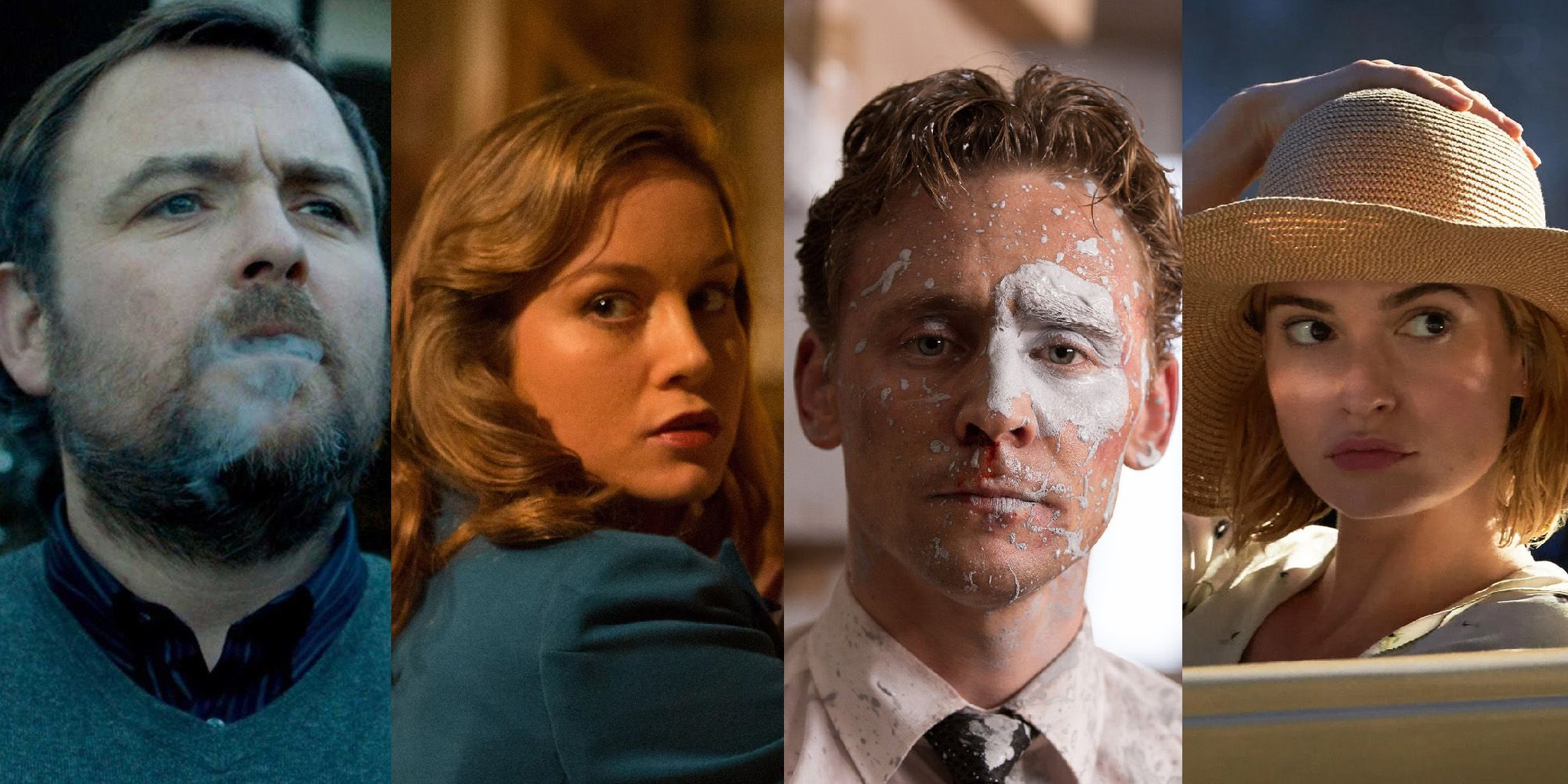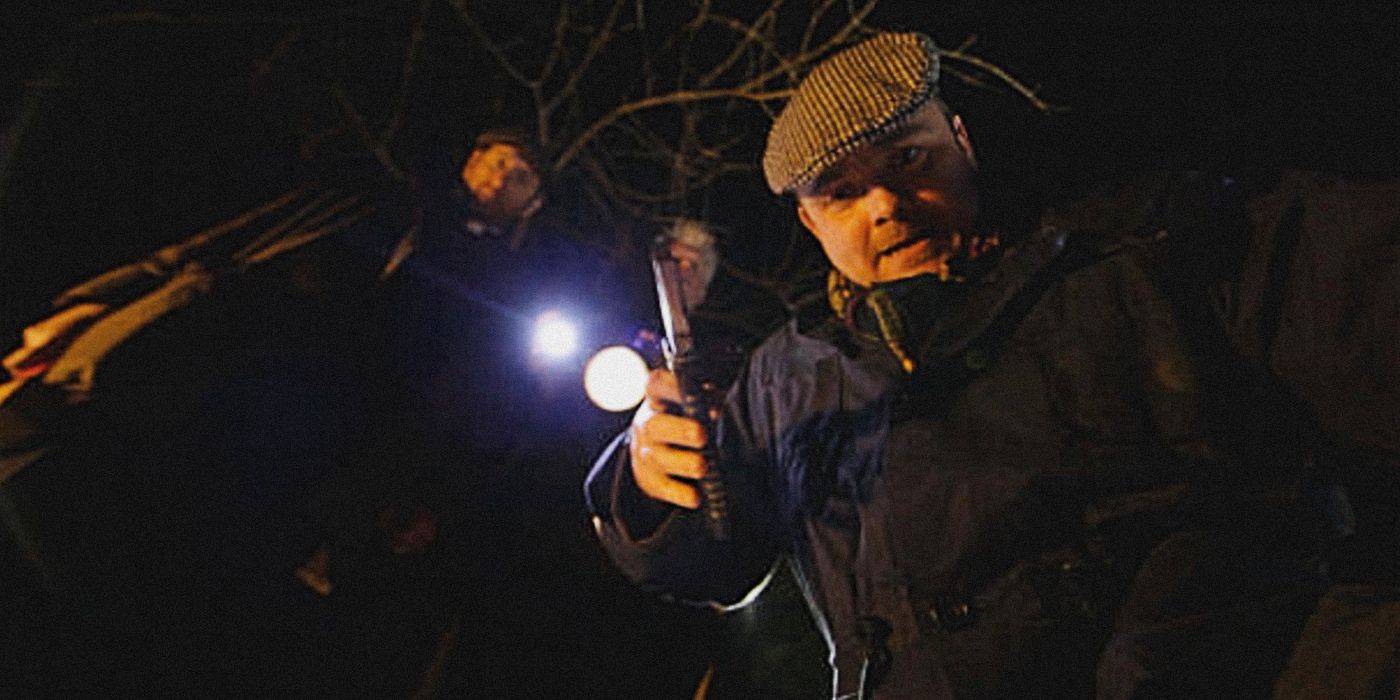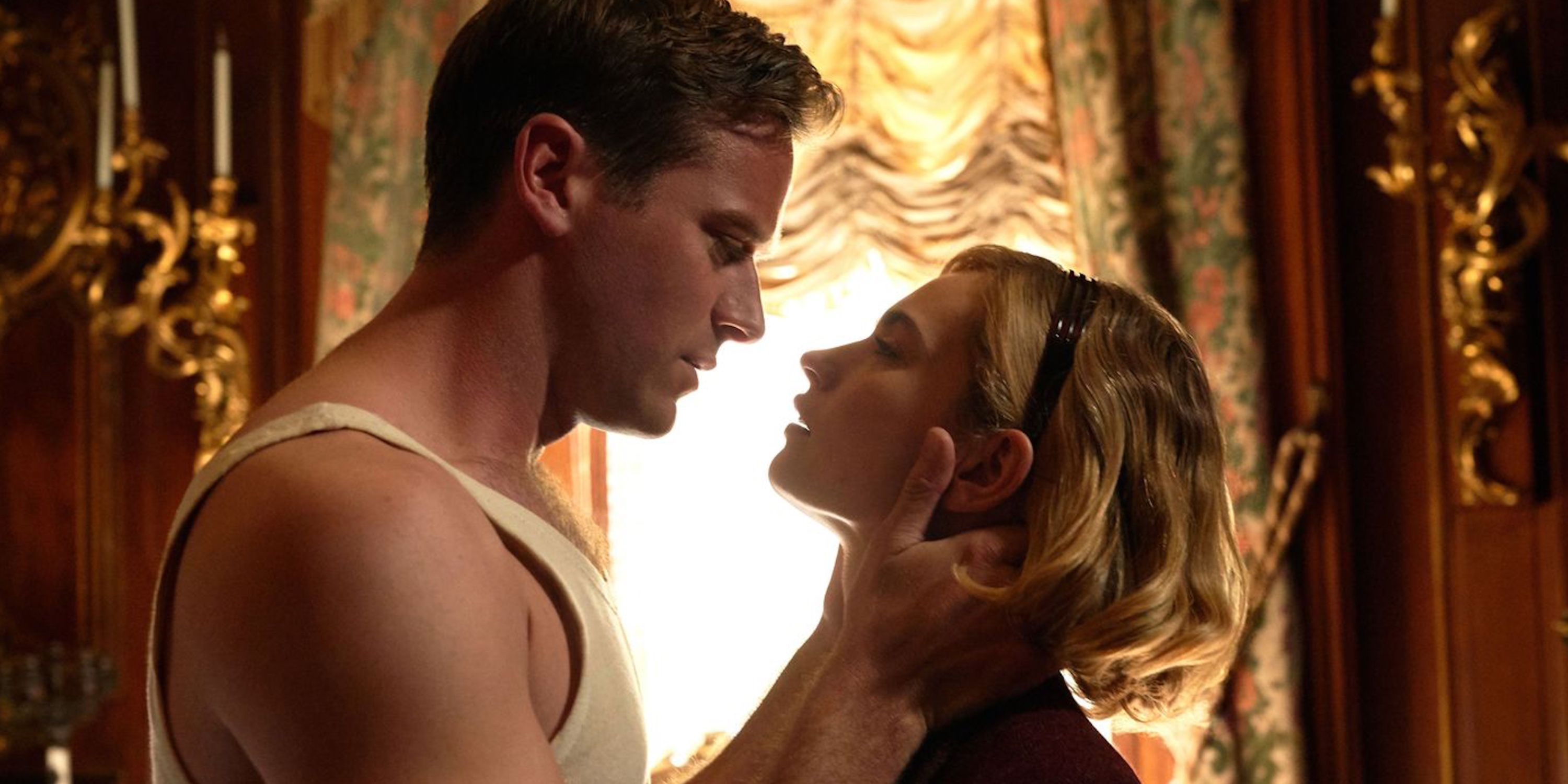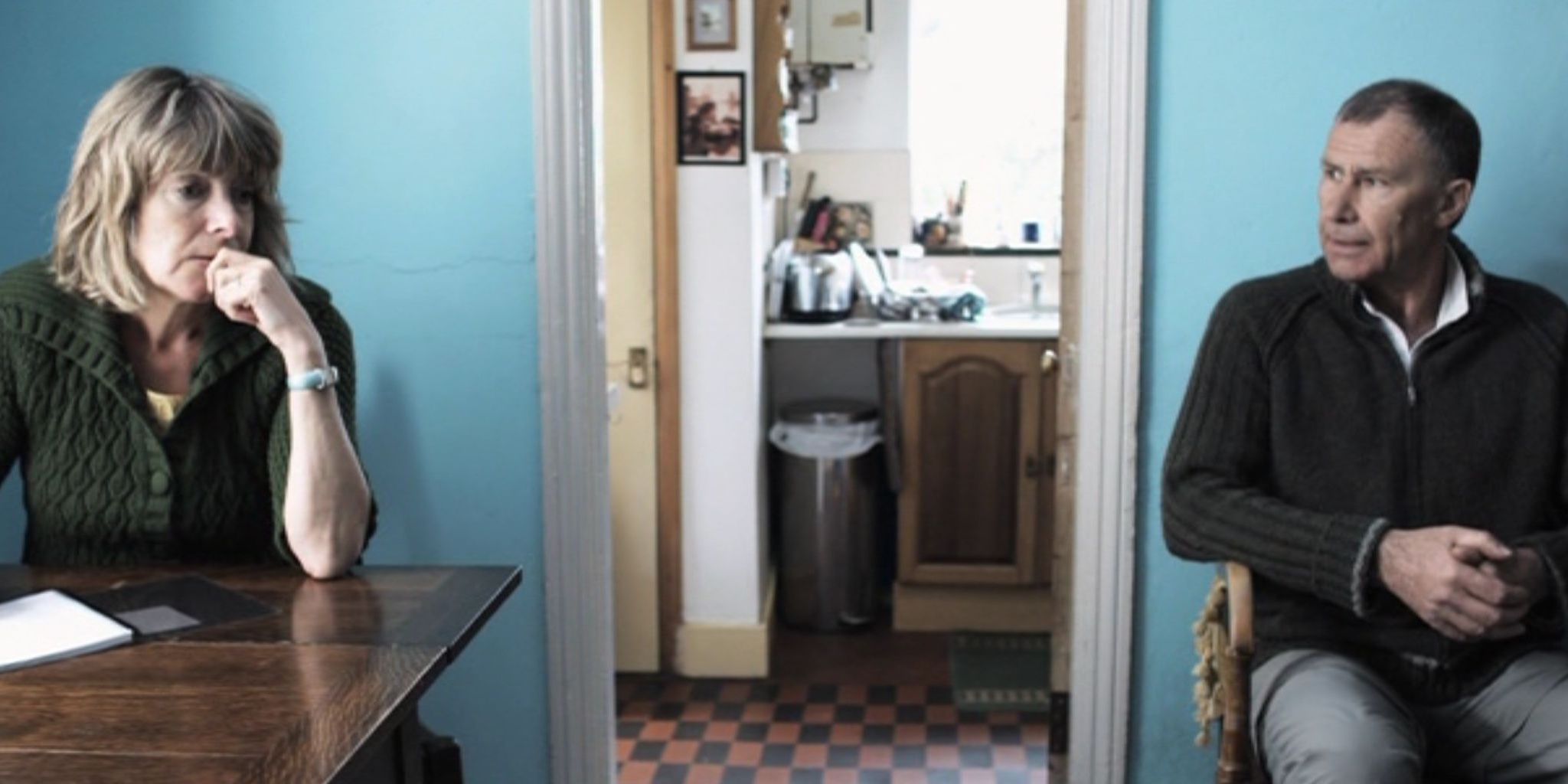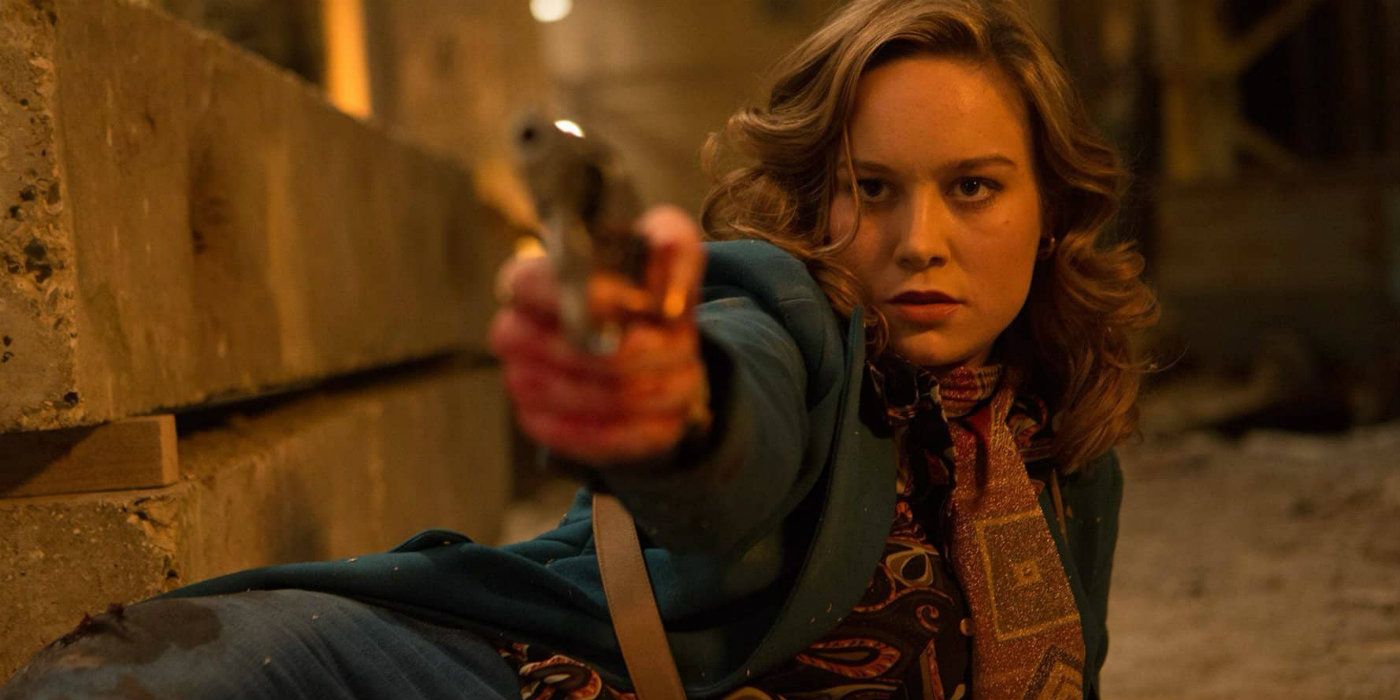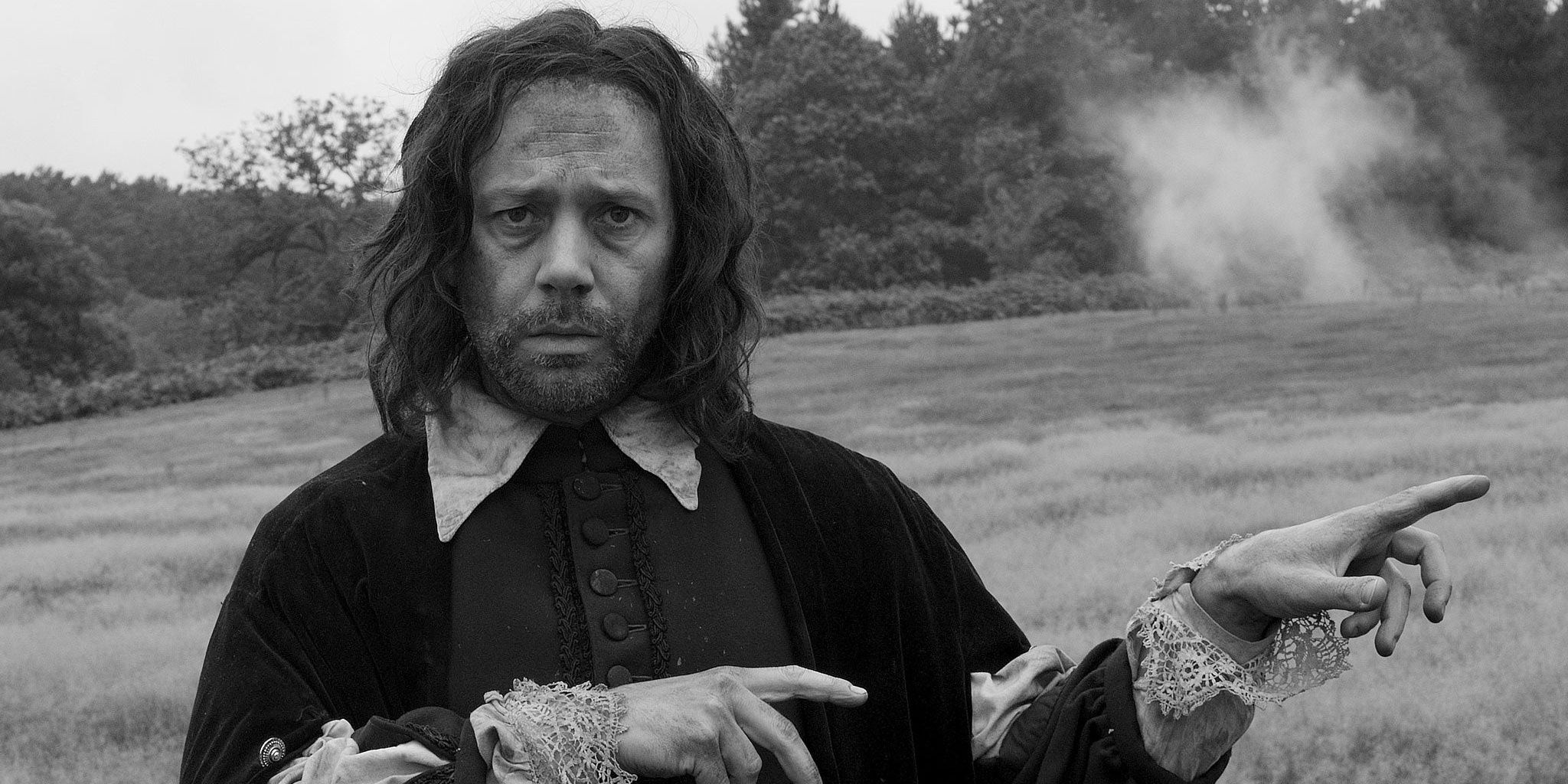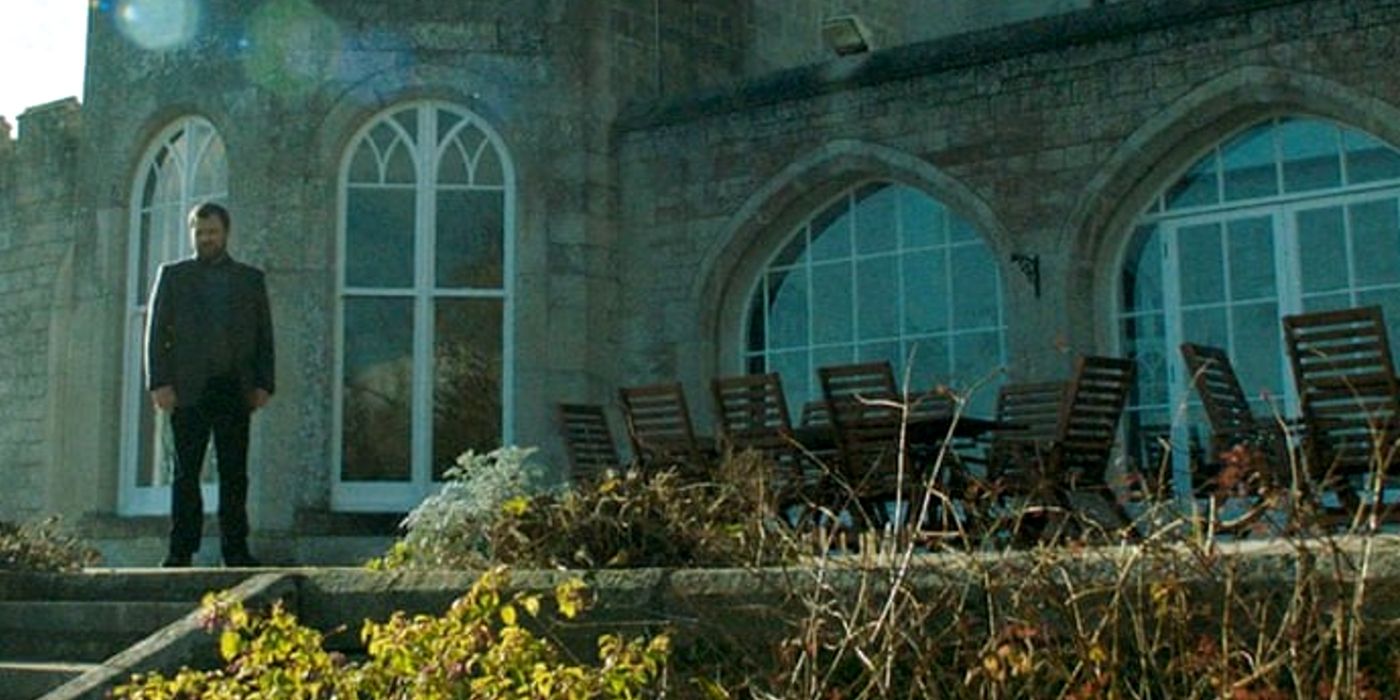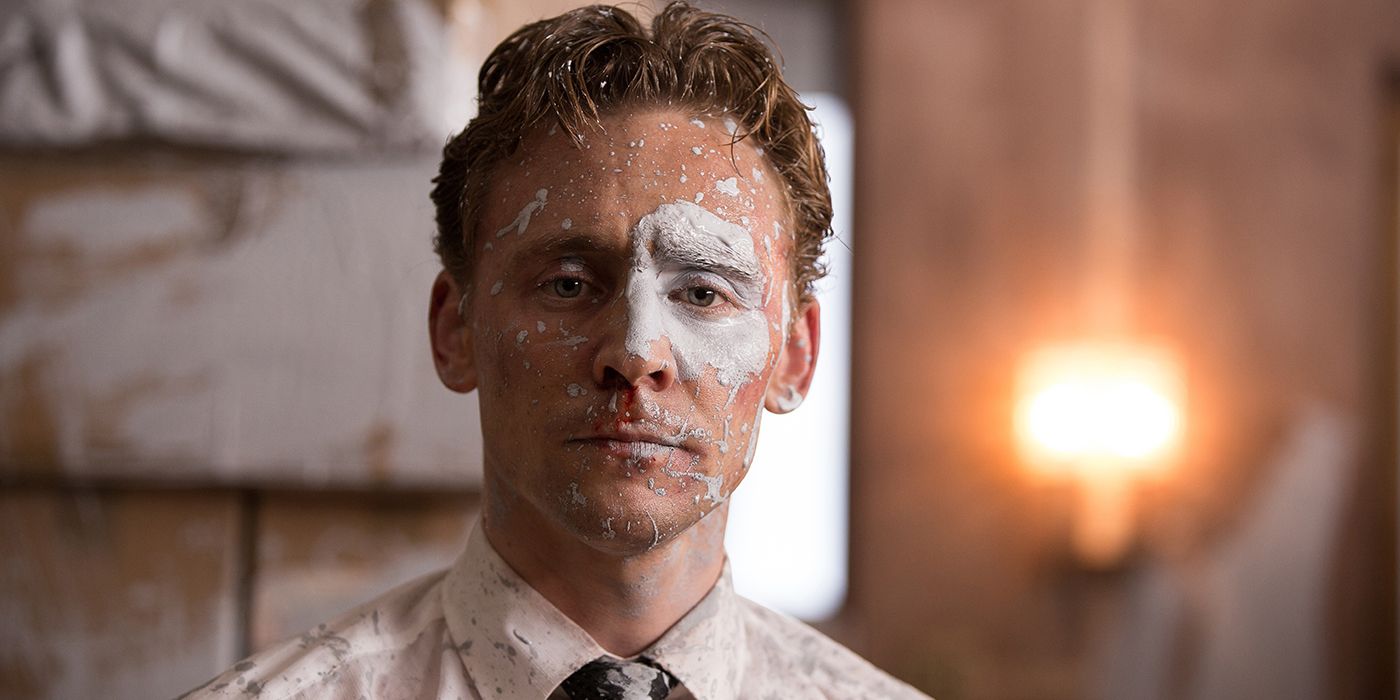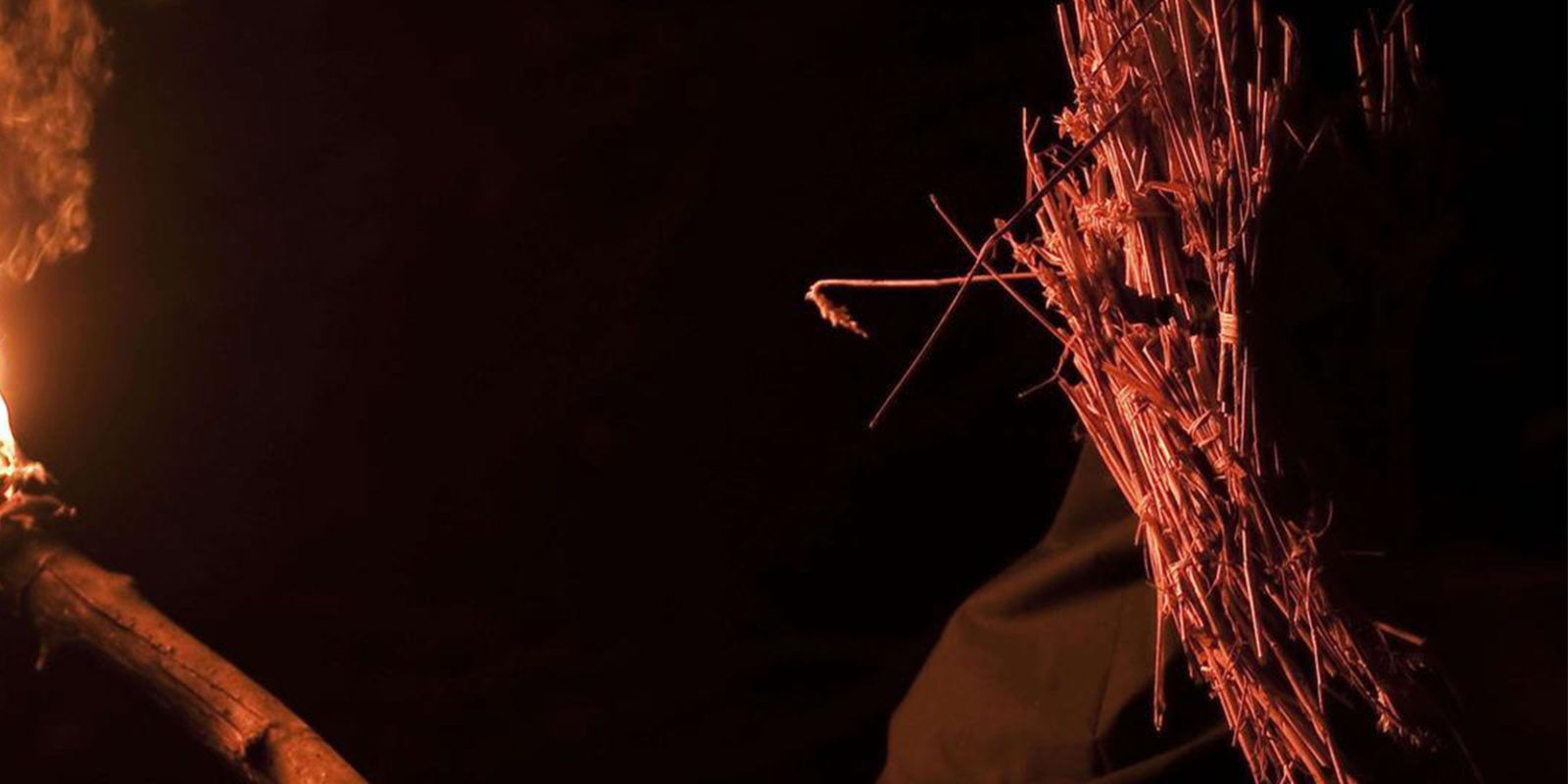Ben Wheatley is one of Britain’s greatest directing talents, boasting an eclectic filmography that nevertheless retains his unique style throughout; here’s every Ben Wheatley movie, ranked from worst to best. An early adopter of internet distribution, Wheatley started out making short films before jumping into television comedy. From there, he self-funded his first feature film, Down Terrace, in 2009 and hasn’t stopped since — carving a blackly comic line through Britain’s cinematic landscape and showing little sign of slowing down anytime soon.
Not one to be put in a box, Wheatley’s films span a wide array of genres — though they always contain some sort of brooding undercurrent, paired with (what many would consider to be) a twisted sense of humor. Like fellow film god (and collaborator) Edgar Wright, Wheatley’s sensibilities are unapologetically eclectic — drawing from both high and low art to create films that are visceral yet meaningful, worthy yet puerile, and unmistakably British — but with a keen eye towards the rest of the world.
Having directed eight feature films to date, as well as a segment for horror anthology The ABCs of Death, Ben Wheatley is largely deserving of this praise, though — as with any prolific artist — his filmography is not without its faults (few and far between as they may be). With that in mind, here’s every Ben Wheatley film, ranked from worst to best.
#9 The ABCs of Death (2012)
An anthology horror-comedy, The ABCs of Death features a short film for each letter of the alphabet — including “U is for Unearthed,” directed by Ben Wheatley and shot from a vampire’s point of view as it attempts to flee an attacking mob. Judged on Wheatley’s segment alone, this might be higher on the list — inventive and atmospheric — but, judged as a complete feature film, The ABCs of Death is an uneven mess with far fewer hits than misses.
#8 Rebecca (2020)
Distributed by Netflix, Wheatley’s Rebecca — based on the Daphne du Maurier novel of the same name — sees the director writing checks that he has no intention of cashing. Lily James stars as Mrs. de Winter, a young woman who gets whisked away to live on her new husband’s estate, only to find the place haunted by the death of his first wife — the titular Rebecca. Visually stunning but ultimately underwhelming, the film shows Wheatley’s talent for tension-building; it’s just a shame that the tension-breaking moments are almost uniformly dull. As such, Wheatley’s Rebecca is all bark and no bite — not a patch on du Maurier’s novel or Hitchcock’s earlier Rebecca adaptation.
#7 Down Terrace (2009)
Wheatley’s debut feature Down Terrace feels exactly like a director’s first movie, with both the good and bad that such a statement implies. Godfather by way of Mike Leigh, the film tells the story of a father and son who, upon being released from prison, look to bring down the rat within their organized crime family. Wheatley’s dark sense of humor is on clear display in Down Terrace, juxtaposing gangster tropes against a dreary, English backdrop — more traditionally associated with soap operas or sitcoms rather than tales of murder and revenge.
Unfortunately, Down Terrace never quite clicks into place as a satisfying whole, though many of its individual scenes are enjoyable. Self-financed and shot over only eight days, it’s difficult to judge Down Terrace too harshly. That said, it’s likely best viewed as a prelude to Wheatley’s other work; stripped back and brimming with potential, but slightly messy around the edges.
#6 Free Fire (2016)
Free Fire is like a live-action Tom and Jerry cartoon, with all of the grizzly viscera that such a notion implies — as well as most of the humor. Set in '70s Boston (but, in true Wheatley fashion, shot entirely in England), it tells the story of two gangs who meet at an abandoned warehouse before things take a turn for the worst, kickstarting a shoot-out to end all shoot-outs. Where Tarantino’s Reservoir Dogs took the sequence that ends most heist films and expanded it to fill an entire feature, Free Fire takes the final scene of Reservoir Dogs and sustains it for an hour and a half. Sadly, it manages to feel kind of disposable — likely a result of its numerous, rather shallow characters and paper-thin premise — though it’s a fun ride in the moment.
#5 A Field in England (2013)
Many Wheatley fans consider A Field in England to be the director’s best work — and they could well be right. That said, the film has got a pretty steep accessibility curve, offering little clarity in regard to its plot and brimming with period dialogue that can prove tricky to understand at first. Set during the English Civil War (17th century), a group of deserters flee the battle into a nearby field, crossing paths with an alchemist (Reece Shearsmith) who enlists their help in his search for buried treasure. While that sounds simple enough, quite what follows is very difficult to describe — though hallucinogenic mushrooms feature heavily throughout. A stoner movie by way of Witchfinder General and the work of Ingmar Bergman, A Field in England possesses an unsettling, unknowable quality that causes it to linger in the memory — along with a surprising amount of toilet humor and the odd set of genitals.
#4 Happy New Year, Colin Burstead (2018)
Shakespeare’s Coriolanus by way of Mike Leigh, Happy New Year, Colin Burstead is understated and character-driven, giving each member of its large ensemble cast the chance to shine. Colin (Neil Maskell) hires a fancy manor house for his family to celebrate New Year, but — in true British fashion — everything goes awry, with a family scandal looming large, and conflict around every corner. A comedy of manners, through and through, Happy New Year, Colin Burstead sees Wheatley go back to his roots — capturing a dysfunctional family (à la Down Terrace) and daring the audience to relate to them. As such, it’s all about the cast — a slew of recognizable, British character actors (including Charles Dance and Bill Paterson) that induce sympathy one minute and hatred the next while always maintaining a darkly comic throughline.
#3 High-Rise (2015)
Polarising, but arguably more accessible than A Field in England, High-Rise is an adaptation of the J.G. Ballard novel of the same name. Tom Hiddleston stars as Dr. Laing, the new resident of a luxury tower block which, over the course of the movie, descends into chaos — becoming a battleground for literal class warfare, wherein Laing has to fight to survive. Visually, this is Wheatley’s best film — refusing to update Ballard’s 1970s sci-fi to account for modern aesthetics and technological changes; instead, setting High-Rise in a retro-futuristic world that shows what would happen if the '70s had never ended.
The main draw of the film comes from watching the tower’s glamorous environs torn apart in the ensuing chaos; its ensemble mirroring that decay and degradation as their survival instincts kick in, causing them to spiral into madness and immoral behavior — thus highlighting the fragility of so-called “civilized” society and demonstrating that Ballard was an author ahead of his time. Or, rather, more worryingly, that human nature is unchanging and the world is a howling abyss of chaos that can seemingly turn on a dime. Recent world events would suggest that the latter is true...
#2 Sightseers (2012)
One of Wheatley’s most overtly comic films (alongside Free Fire), Sightseers still deals in the macabre — chronicling a pair of fledgling serial killers on a caravanning holiday across the English countryside. Written by stars Alice Lowe and Steve Oram, the film re-frames the classic “lovers on the run” narrative (usually set in the American South) through darkly comic, and distinctly British, eyes — one moment, silly and broad, the next, brutal and unflinching. Sightseers also boasts an incredible soundtrack, bathing England’s “green and pleasant land” in an otherworldly light — with Soft Cell’s “Tainted Love” and Vanilla Fudge’s haunting “Season of the Witch” among the best needle-drops in recent memory.
#1 Kill List (2011)
One of the great gear-shift films, Wheatley’s Kill List starts as a brutal crime drama before descending into absolutely depraved folk-horror. A pair of hitmen accept a new contract with the promise of a big payday but the job begins to get the better of them, slowly revealing itself to be an elaborate plot with cultish implications. Doom-laden and oppressive, Kill List is a deeply troubling movie — not for the faint of heart — with graphic, gory violence, and a probing camera that refuses to look away from the ensuing horror. Neil Maskell and Michael Smiley (two of Wheatley’s regular collaborators) shine as the hitman duo — aggressive and scary, yet oddly compelling; like watching a car crash unfold and being powerless to stop it.
The perfect successor to Robin Hardy’s The Wicker Man (1973), Kill List speaks to the darkness at the heart of humankind. Like something from a twisted fairytale, Ben Wheatley marches his audience into the woods, lets go of their hands and snuffs out the light — disappearing with a violent shriek that will, no doubt, recur in their collective nightmares for many years to come.

